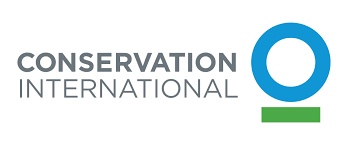Community / Land projects / Eldoret-Iten Water Fund for Tropical Water Tower Conservation
Eldoret-Iten Water Fund for Tropical Water Tower Conservation

€2451201.305
06/22 - 06/22
Завершено
This project is part of
Implementing Organisations
Donors
Data Providers
Objectives
Conserve globally significant biodiversity and protect the integrity and resilience of critical ecosystems and their services in the targeted water towers
Other
Note: Disbursement data provided is cumulative and covers disbursement made by the project Agency.
Target Groups
The project, in particular through its Component 2, aims at supporting local resource users and the relevant county organizations to establish sustainable agricultural practices that target improved livelihoods, ecosystem resilience as well as related land use planning approaches. Involving local stakeholders and decision makers in catchment restoration and land use planning increases their appreciation of the direct interactions between water management, agricultural production and ecosystem services; supporting increased supply of natural resources for the benefit of both the users and the catchment itself. Engaging private companies in upstream catchment management aims to improve food value chains, e.g. through longer-term horticulture contracts for export markets such as green beans, avocados, potatoes and other vegetables, leading to increased profits and improved livelihoods. These in turn provide further incentives for locally engaging in sustainable catchment management. In Component 2, the project commits to delivering socio-economic benefits to the local resource users through ? Climate smart food value chains benefitting 5,000 households (22,500 persons); and ? A 20% increase in farm production yields The project will promote labor saving technologies for the activities performed by women for marketable commodities as well as for household tasks such as water or fuel supply and food preparation. The technologies include solar cookers, rainwater harvesting, woodlots, water spring protection, and energy efficient stoves, among others. The project will also promote backyard gardens for food and nutrition security as well as conduct nutrition messaging to accompany any training at community level. Women groups will be encouraged to participate in livelihood value chain activities to earn income e.g. on beekeeping, or fruit tree management. Further indirect socio-economic benefits can be derived from the improved ecosystem status in the targeted catchments, including through improved water quality and quantity, wetland and forest restoration. The combination of biophysical and agricultural techniques and support for water management is expected to lead to diversified production and increased yields through improved soil retention; broadened adaptation potential and resilience through reduced erosion upstream, as well as at least stabilized catchment ecosystem services. Downstream economic benefits will include reduced water treatment costs through reduced sediment concentration and increased hydropower generation through higher water yield and reduced sedimentation. The Water Fund to be established will perpetuate the incentivization of integrated catchment management, leading to local and global environmental as well as local socio-economic benefits, both up- and downstream. Among the global environmental benefits are: ? Maintenance or improvement of the sustainable delivery of ecosystem services; ? Maintenance or improvement of land and soil productivity, in order to enhance food security; ? Synergies with other social, economic and environmental objectives, reinforcing responsible, inclusive and sustainable land management. The socioeconomic benefits to be delivered by the project and the EIWF are also closely aligned with Aichi Target 4 […] governments, business and stakeholders at all levels have taken steps to achieve or have implemented plans for sustainable production and consumption […], Aichi Target 7: […] areas under agriculture, aquaculture and forestry are managed sustainably, ensuring conservation of biodiversity, Aichi Target 11: […] terrestrial and inland water […] areas, especially areas of particular importance for biodiversity and ecosystem services, are conserved through effectively and equitably managed, ecologically representative and well connected systems of protected areas and other effective area-based conservation measures, and integrated into the wider landscapes […], as well as Aichi Target 14: […] ecosystems that provide essential services, including services related to water, and contribute to health, livelihoods and well-being, are restored and safeguarded […].




